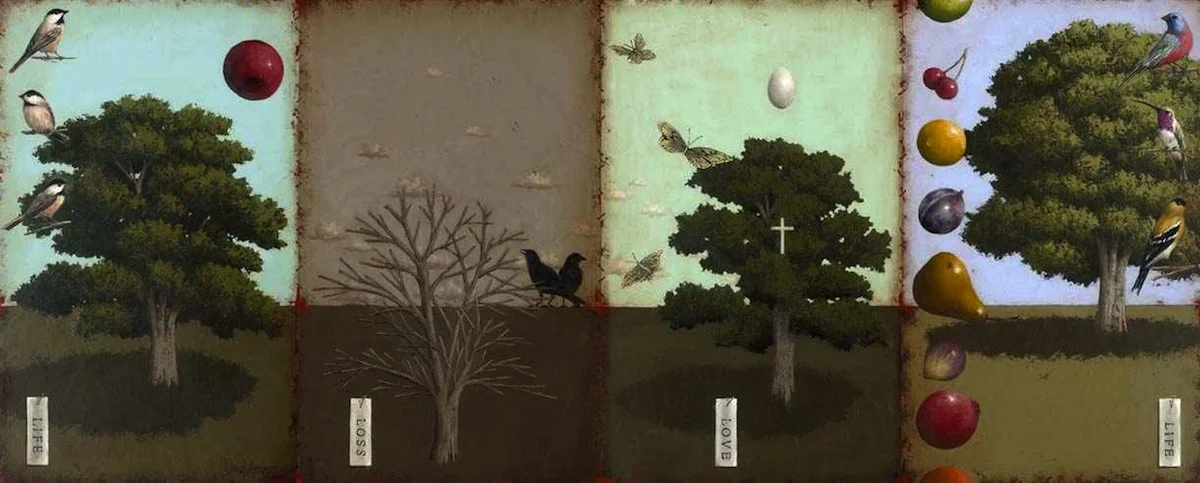6 Ways to Read the Bible Better: Part 1
If you spend any time in the blogosphere, you probably have come across helpful lists on how to become a better reader. Some, like “How To Become a Better Reader in 10 Steps” by Gretchen Rubin, or Tim Challis’ “10 Tips to Read More and Read Better,” offer practical guidance for reading in general. I often find such articles helpful for rebooting my engagement with the written page. As the tagline at the top of the screen suggests, the purpose of this blog is to help you pick up and read the Bible better, and in this post and the next I want to offer 6 places to begin. So how might we “read the Bible better?”
1. Read Relationally. We make a mistake in the modern church if we focus on the penultimate rather than ultimate reasons we do certain activities. My book Read the Bible for Life was written out of a deep burden for helping believers become more biblically literate. Yet, we need to be careful that in our focus on the challenge of biblical literacy—a very real challenge with massive implications for the church in the coming decades—we don’t obscure the ultimate issue. At the end of the day Bible reading is for relationship. God has spoken truth into the world so that we might know him. We should read the Bible, in other words, because we can meet the living, loving, beautiful, all-powerful Creator of the universe in its pages.
Ultimately our goal should be to see Jesus more clearly (Heb. 3:1), so we can love him and serve him faithfully. In Understanding the Bible John Stott writes, “There is only one way to gain clear, true, fresh, lofty views of Christ, and that is through the Bible. . . . We need to gaze upon him with such intensity of desire that (by the gracious work of the Holy Spirit) he comes alive to us, meets with us, and fills us with himself.” To begin reading the Bible better, we need to move back to a focus on relationship with God.
2. Read Joyfully. This brings us to a second way to read the Bible better: enjoy yourself. Of course there is discipline required for any healthy relationship, but the best relationships are driven by joy. In his great wow-fest on God’s word, the psalmist writes, “I delight in Your commands, which I love” (Ps 119:47, HCSB), and the Hebrew word translated “love” is a wonderfully relational word. At the heart of the psalmist’s delight in the Word is God himself. Because he loves the Wordsmith, he loves the words.
C. S. Lewis memorably said, "Joy is the serious business of heaven," and we know that we are making progress in reading the Bible as we simply find joy in it—interspersed certainly with times of rugged discipline and perplexing dryness. But there is joy because there is God. In his Personal Narrative (c. 1739) Jonathan Edwards speaks of an experience of reading the text of Scripture deeply, even ecstatically. He writes, “I thought with myself, how happy I should be, if I might enjoy that God, and be wrapped up to God in heaven, and be as it were swallowed up in him." One of Edwards’ keys for reading Scripture well was slowing down and meditating deeply on what was being said. He confessed he poured "long on one sentence, to see the wonders contained in it.” Romance can’t be rushed. Joy-filled relationships have space to thrive. If you lack joy in Bible reading, slow down. Make space. Furthermore, get to heart of the issue by working through where you are at present in your relationship with God.
3. Read Missionally. Someone has said that Bible reading is not ultimately about getting the Story of the Bible into us but about getting us into the Story. We will read the Bible better as we respond to its persistently loving call. The Bible is not a beggar beside the road of our existential experience, hat in hand pleading for attention. Rather, it calls us out of ourselves to the foot of a throne, which also is the staging-ground of the universe. Will Herberg writes,
“redemptive history is not merely a recital that we hear and understand. It is also a demand upon us, for out of it comes the voice of God. Faith is responding to the call of God . . . [when we read the Bible] it is as though we sat witnessing some tremendous epic drama being performed on a vast stage, when suddenly the chief character, who is also its director, steps forward to the front of the stage, fixes his eye upon us, points his finger at us and calls out: ‘You, you’re wanted. Come up here. Take your part!”
There is nothing more exciting than having a sense that as I meet God in the pages of the Word, in the rhythm of relationship, it is not just about me; it is about mission. We are shaped for his mission.
So my first three points on reading the Bible better are read relationally, read joyfully, and read missionally. In Part 2 we will take up three more guidelines to reading the Bible better.






